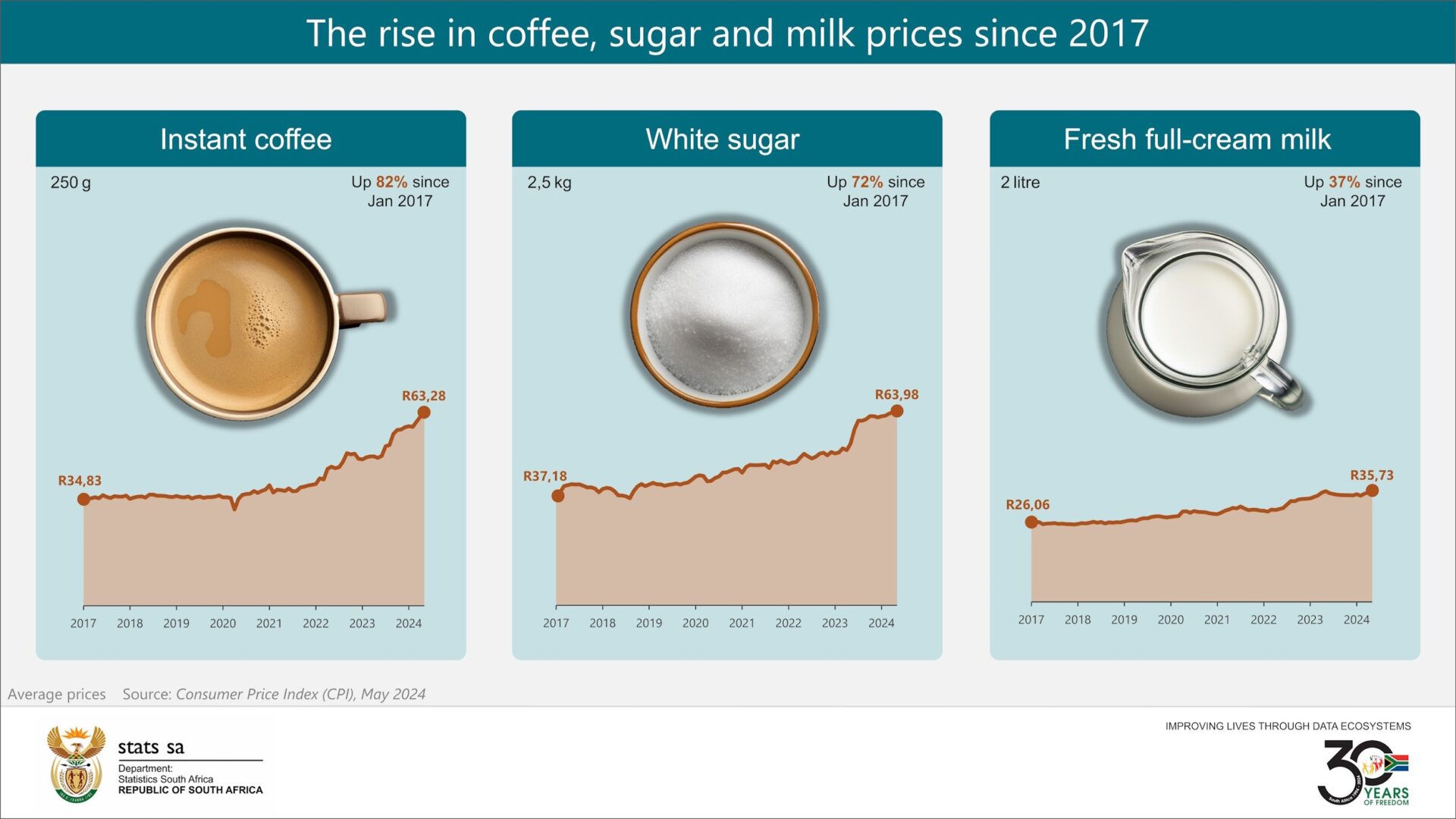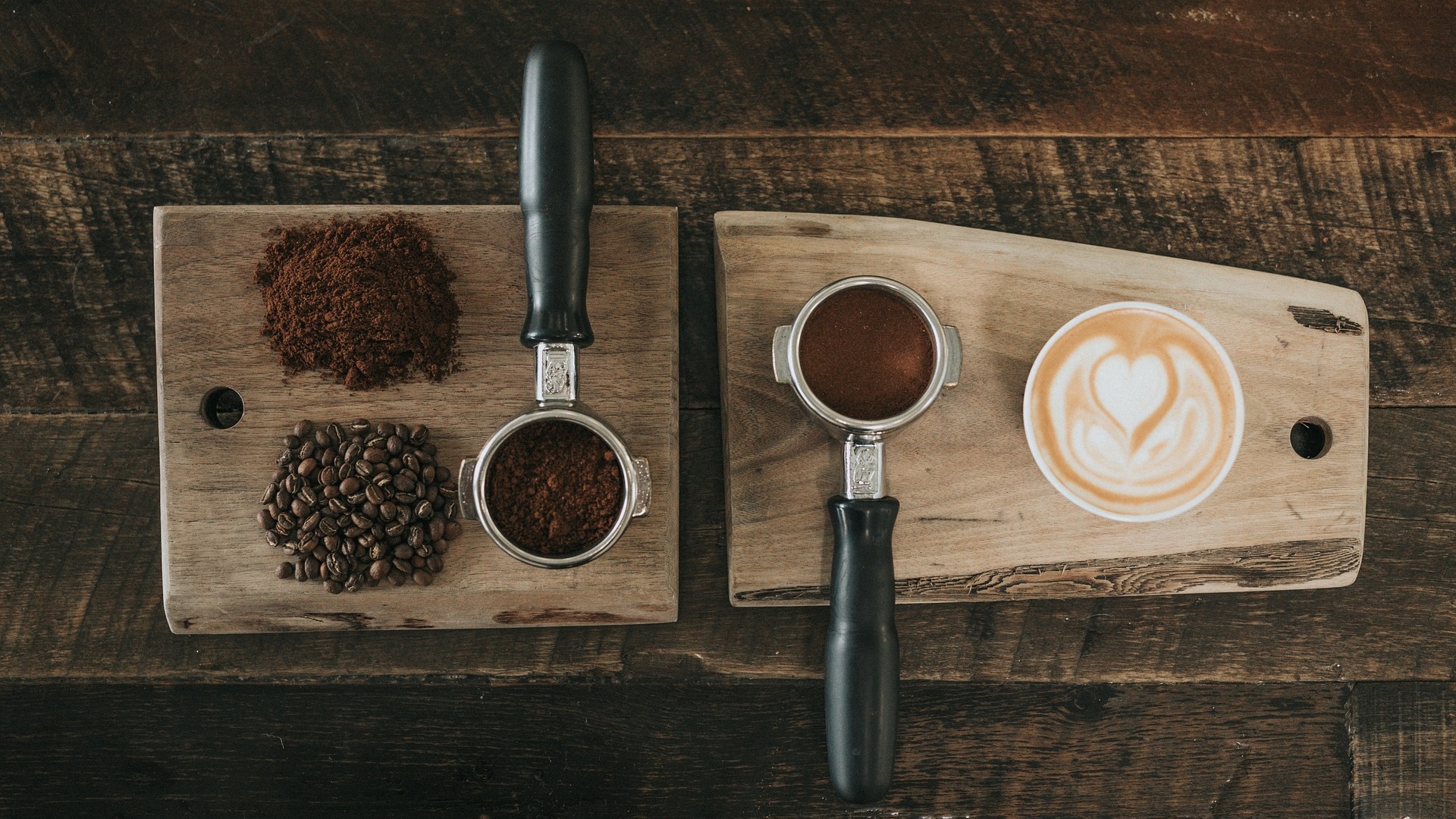- Statistics South Africa reports that the price of coffee has increased by 82 percent since 2017 but really, the price has only increased over the last three years.
- Coffee production has lowered in Brazil and Vietnam, two of the biggest producers of coffee in the world, limiting supply.
- This is a result of climate change making it tougher to grow the crop.
Caffeine addicts of South Africa may want to begin exploring alternative beverages following the release of the Consumer Pricing Index for May by Statistics South Africa this week.
The good news is that annual consumer price inflation was at 5.2 percent for may, a difference of 0.2 percent compared to April, keeping average prices relatively flat although there were some spikes.
“Annual rates for four of the twelve product groups remained steady between April and May, including food & non-alcoholic beverages (NAB). Higher rates were recorded for transport, alcoholic beverages & tobacco and recreation & culture. Inflation was softer for miscellaneous goods & services, communication, clothing & footwear, health and restaurants & hotels,” Stats SA said this week.
Our focus here though is the price of coffee which was 82 percent higher in May 2024 than it was in January 2017. But that increase doesn’t reflect the true nature of the increase.

As showcased in the graphic above, the price of instant coffee only really started to climb in 2021. From 2017 to 2020, the price remained relatively flat.
The reason the beverage is becoming so expensive comes down to supply. Prices of Arabica coffee have increased by 24 percent over the last year according to FNB Commercial. This increase was driven by dry production conditions in Vietnam and below average rainfall in Brazil.
“Vietnam’s agriculture department earlier projected a 20% decline in the country’s coffee production to a four-year low of 1.47 million tons. The spill over crisis in the global cocoa market added to increased uncertainty and speculation in the market. Although easing from the 2024 peak recently to US$9,278/ ton, cocoa prices have increased by 121% y/y and a historical high for the commodity. News out of the major cocoa producers is that the supply outlook remains tight with Ivory Coast’s 2023/24 production estimate cut by almost 22% y/y to 1.75 million tons,” explains senior agricultural economist at FNB Commercial, Paul Makube.
The economist says that all forms of the ground bean are getting more costly especially beans and ground coffee.
This isn’t that surprising when you consider that for years, scientists have warned that climate change will directly impact coffee production. As it gets tougher to produce the crop, the more expensive coffee will get and as we can, we’re already seeing those prices rise.
“Estimates show that 30 years from now, basically 50% of coffee lands as we know them today will not be viable for coffee production anymore”, Philipp Navratil, global head of Nestle’s coffee strategic business unit told Bloomberg in December.
South Africans may want to look out for sales on coffee, especially sales on beans which generally last a bit longer than other forms of the beverage.

